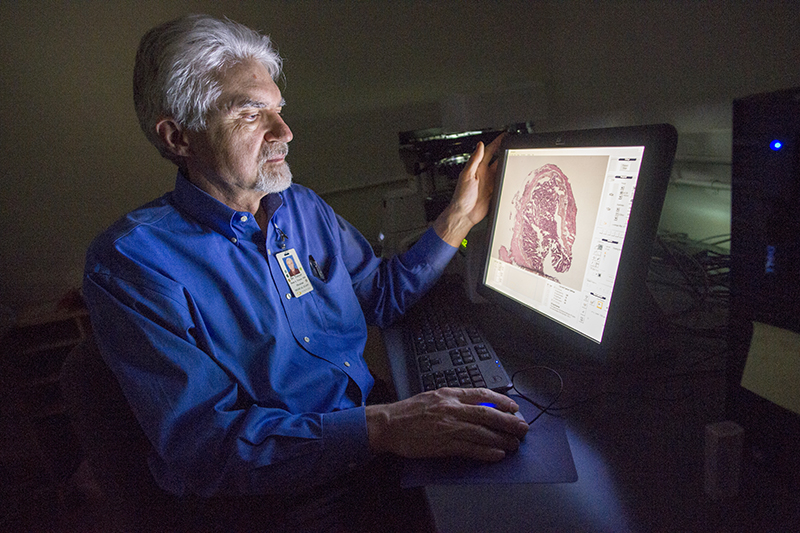Major NIH grant may advance kidney-cancer treatment

The National Institutes of Health, through the National Cancer Institute, recently awarded a $300,000 Small Business Innovation Research (SBIR) grant to LaGrange Scientific. The one-year grant funds a project titled “Diagnostic Test for Metastatic Kidney Cancer.”
The grant is a collaboration of Provia Biologics, founded by Dean Troyer, MD, Professor of Microbiology and Molecular Cell Biology at EVMS, and two researchers at Lagrange Scientific, LLC. This brings together expertise in the development and commercialization of diagnostic tests.
“My hope is that this will lead to an FDA-approved test to determine the prognosis of kidney tumors,” Dr. Troyer says, “and to identify the right drugs to target them.”
The research utilizes a technique pioneered by Dr. Troyer and collaborators at the University of Alberta, Canada, that preserves tissue in alcohol, rather than the traditional formalin. Called Histabolomics, the new storage method allows the preserving liquid to be tested for metabolites. A 2017 study about this was published in Nature Scientific Reports.
But Dr. Troyer says that if it wasn’t for a unique strength of the EVMS Biorepository, his new kidney-cancer research might not be possible.
He explains that cancer patients who travel to major institutions for their initial treatment often return to their hometowns for follow-up care. So while their tissue samples are stored at the major institution’s biorepository, researchers who need data from their follow-up care can face time-consuming challenges tracking it down.
For Dr. Troyer’s latest research, access to data from follow-up care is vital. Fortunately, for most of the 70,000-plus tissue samples stored in the EVMS Biorepository, the patients’ follow-up care was managed locally.
“We’re able to go into the bank of tumors,” Dr. Troyer explains, “look at the clinical follow-up and determine whether there was a metastasis. It’s an incredible benefit of our biorepository.”
After this first research phase is completed, Dr. Troyer and his collaborators plan to apply for a Phase 2 SBIR grant.